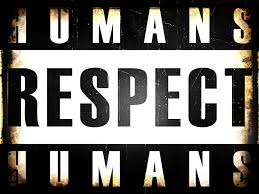“If thought corrupts language, language can also corrupt thought” –George Orwell
By Savannah Christie, CMWN Intern
When I meet new people I don’t introduce myself and say “Hi, I’m Savannah and I am depressed,” so please don’t call me that. My mental health condition does not define who I am as a person, there are so many other qualities and traits that I possess and want to share with the world. However, as soon as my mental health condition becomes a “defining” quality of mine, I no longer want to share those other characteristics of mine because I have been labeled. Having a label takes away my true sense of self, confidence and I begin to question, “is this how others see me?” One of the simplest ways to avoid discriminating against individuals with mental health conditions and demeaning their character is to use person first language.
Person first language should be used when addressing or discussing mental health conditions or other disabilities because it does not discredit a person’s character. Person first language allows people and their diagnoses to be two separate entities. As soon as someone says, “he’s bipolar,” there immediately becomes judgment and pity. No one wants to be looked at a certain way because they have been labeled and that person most likely does not want others’ pity. Instead, that person should be addressed by their name and their diagnosis. For example, Paul has a cognitive disability diagnosis. This manner of acknowledging mental health conditions makes others aware of Paul’s condition, but that it is only a diagnosis and not a defining quality of Paul.
One in five Americans has a disability and people with disabilities make up America’s largest minority group meaning one in five Americans is discriminated against everyday, if not more. People living with disabilities already have it harder than the average person, why not try and give them the respect that average people receive? The use of person first language gives individuals with health conditions an identity other than a diagnosis, therefore individuals can cultivate the courage to truly be themselves and prevent their diagnosis to cause a sense of isolation, as it often does.
Examples of person first language:
Say: People with disabilities instead of “The handicapped”.
OR “Paige has a diagnosis of autism” instead of “She’s autistic”.
OR “Tim has a mental health condition” instead of “He’s mentally ill or unstable”.
https://www.disabilityisnatural.com/people-first-language.html
https://upload.wikimedia.org/wikipedia/commons/f/fd/Wheelchair_user_on_Red_Line.agr.JPG

